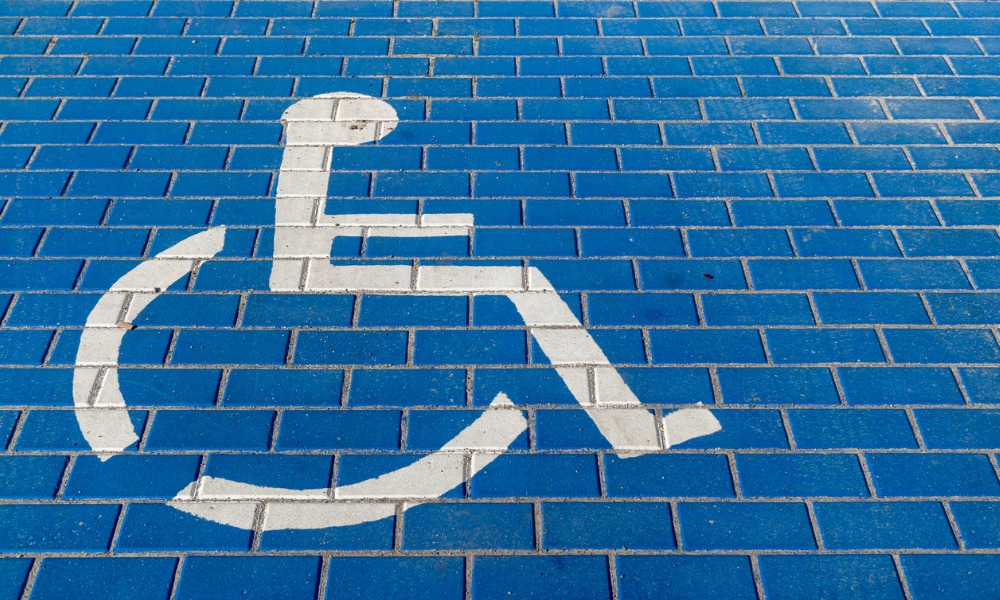Advocates express disappointment as Canada Disability Benefit's impact on poverty falls short of promises

The federal government has announced that the new Canada Disability Benefit will lift approximately 25,000 adults out of poverty, a figure significantly lower than the initial promise to help hundreds of thousands.
This benefit was first introduced in 2022, and the updated numbers were reported by CBC News.
Carla Qualtrough, the former minister of employment, workforce development, and disability inclusion, emphasized the potential impact of the benefit in a speech to the House of Commons on September 21, 2022.
She described it as a “once-in-a-generation change” aimed at lifting working-age Canadians with disabilities out of poverty.
The passage of Bill C-22 in June 2023 established this federal benefits program, which aims to supplement provincial supports. Payments are scheduled to begin in July 2025, with a maximum monthly benefit of $200 for low-income Canadians with disabilities.
Although 1.6 million Canadians with disabilities live below the poverty line, the federal budget in April indicated that only 600,000 would be eligible for the new benefit.
The government projects that by 2028, the benefit will lift 25,000 working-age persons with disabilities and 15,000 of their family members out of poverty each year. However, this falls short of the initial promise to aid hundreds of thousands.
When questioned by CBC News at a public transit announcement in Brampton, Ont., about the government's commitment to the disabled community, Diversity, Inclusion, and Persons with Disabilities Minister Kamal Khera emphasized the significant allocation of funds.
“For the first time ever, we have a statutory benefit in Canada, a disability benefit,” she stated, highlighting the $6.1bn allocated in the budget for this purpose.
Khera’s remarks came in response to Green Party MP Mike Morrice, who criticized the government for not fulfilling its promise. Morrice, who represents Kitchener Centre, expressed disappointment, and stressed the need for continued advocacy.
“For three years, the government promised a benefit that would lift hundreds of thousands out of poverty. This makes it more difficult to trust this government,” he said.
Rabia Khedr, the national director for Disability Without Poverty, echoed these sentiments, criticizing the Liberals for not delivering on their promise. “So, few people with disabilities are being given so little,” Khedr told CBC. “This benefit had given them hope, but that hope has been taken away.”
Khedr also highlighted the dire circumstances faced by many people with disabilities due to the rising cost of living. Some are considering medical assistance in dying (MAID) as they struggle to make ends meet.
“We are finding disabled people reaching out online to raise money for food and rent,” she said. “Some are saying they might consider MAID because they are not being supported to live with dignity.”
According to Statistics Canada, more than 12 percent of people with a disability aged 15 years or older lived below the poverty line in 2022, up from 10.6 percent in 2021 but still below pre-pandemic levels.
Alex Yates, a Canadian living with a disability, shared his experience of poverty. He receives $1,389 from the Ontario Disability Support Program through a diet allowance. “They're not lifting anyone out of poverty with the amount of money they are giving,” Yates told CBC. “They are basically spitting on us.”
The CMHA in Winnipeg has partnered with Red River Polytech for a new micro-credential training program that addresses psychological health in the workplace.
Donig-Harder says the first training session took place mid-June involving many people who worked in different positions such as employers, human resources, and employees. Interested parties can contact the CMHA in Winnipeg for more information about the next session, which will be in the fall.



